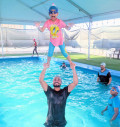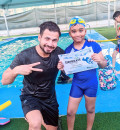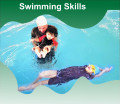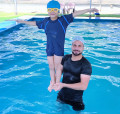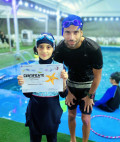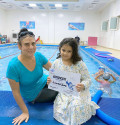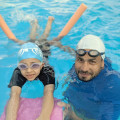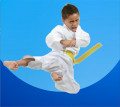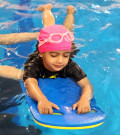
Karate equips children with essential self-defense techniques
2024-03-16 - karateKarate is more than just a physical activity for children.
It is a discipline that instills important values, fosters professionalism, and
helps in character development. In recent years, the popularity of karate for
kids has grown significantly as parents recognize the multifaceted benefits it
offers beyond mere physical fitness. Let's delve into why karate is an
excellent choice for children and how it contributes to producing
professionalism from an early age.
Physical Fitness:
Karate involves rigorous physical training, which improves
strength, flexibility, and overall fitness. Children engage in various
exercises and techniques that enhance their motor skills and coordination.
Discipline and Focus:
One of the fundamental principles of karate is discipline.
Kids learn to follow instructions, adhere to rules, and maintain focus during
training sessions. These qualities extend beyond the dojo and are valuable in
academic and social settings.
Self-defense Skills:
Karate equips children with essential self-defense
techniques, empowering them to protect themselves if the need arises. Knowing
how to defend oneself builds confidence and a sense of security.
How Karate Fosters Professionalism
Teaching Respect and Humility:
In karate, respect for instructors, fellow students, and the
art itself is paramount. Children are taught to bow as a sign of respect and to
listen attentively to their instructors. This ingrains humility and teaches
them to treat others with dignity and respect.
Building Confidence and Leadership Skills:
As children progress in their karate journey and achieve
milestones, their confidence grows. They learn to set goals, work hard, and
persevere through challenges. Karate also provides opportunities for
leadership, as older students often mentor younger ones, fostering a sense of
responsibility and leadership qualities.
Structure of Karate Classes for Kids
Karate classes for kids typically follow a structured format
designed to cater to their age and skill level. Classes often begin with
warm-up exercises to prepare the body for training.
Importance of Qualified Instructors
The role of instructors in karate cannot be overstated.
Qualified instructors bring experience, expertise, and a passion for teaching.
They create a supportive environment where children feel encouraged to learn
and grow.
Success Stories: Kids Who Excelled in Karate
Numerous success stories attest to the transformative power
of karate for children. Many kids who started with little experience have gone
on to excel in competitions, earn black belts, and even become instructors
themselves.
Tips for Parents Considering Karate for Their Kids
Finding a Reputable Dojo:
Researching and selecting a reputable karate dojo is
essential. Parents should visit different dojos, observe classes, and speak
with instructors to ensure it's the right fit for their child.
Understanding Commitment and Expectations:
Karate requires dedication and commitment. Parents should
understand the time and effort required for their child to progress and excel
in the martial art.
Supporting and Encouraging Their Child's Journey:
Encouragement and support from parents play a crucial role
in a child's karate journey. Celebrating achievements, providing encouragement
during setbacks, and showing interest in their progress can motivate children
to stay committed to their training.
Conclusion
Karate for kids goes beyond physical exercise; it's a
pathway to professionalism. Through structured training, mentorship, and the
cultivation of essential values, children develop not only martial arts skills
but also qualities that serve them well in all aspects of life. By embracing
karate, parents empower their children to become confident, disciplined, and
respectful individuals.







.jpg)















































